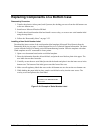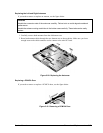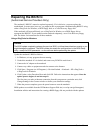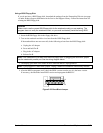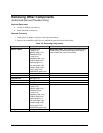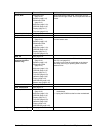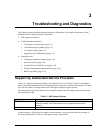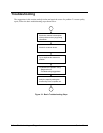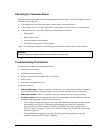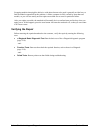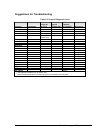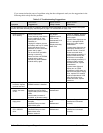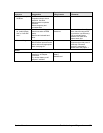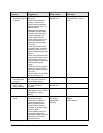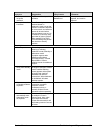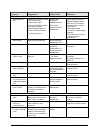
Checking for Customer Abuse
Some notebooks might appear to have been damaged by customer abuse. Use these guidelines to help
determine if this is the case:
• If the shipping box is seriously damaged, customer abuse cannot be declared.
• If the damage could have a cause other than customer abuse, customer abuse cannot be declared.
• If the notebook shows any of the following, customer abuse is declared:
! Missing parts.
! Broken plastic parts.
! Parts not original to the notebook.
! Damaged or missing keys on the keyboard.
Table 3-3 lists additional criteria for determining customer abuse to specific parts of the notebook.
Important
Parts damaged by customer abuse are not covered by the warranty.
Troubleshooting the Problem
Record pertinent information about the notebook:
• Model and serial number.
• Operating system and version.
• Software version (stored in hidden file c:\version.inf).
• BIOS version.
• Accessories and peripherals used.
Analyze the problem:
•
Observe Symptoms. Using the customer’s information, try to duplicate the problem. Determine
how the problem differs from proper behavior. Also, note the functions that do work properly.
• Separate Problems. If there are multiple symptoms, separate them into distinct problems.
•
Consider Causes. Keep in mind possible causes for each problem. Use the diagnostic tools and
troubleshooting suggestions to help find possible causes.
! The e-Diagtools diagnostic program tests most of the notebook’s components using automatic
and interactive tests, and is your primary troubleshooting tool. Other tools include the
power-on self-test, WMI/Toptools (if installed), the BIOS Setup utility, and the Sycard
PCCtest. Table 3-2 on page 3-5 shows how you can use these tools to isolate the cause of the
notebook’s problem.
! The troubleshooting suggestions on page 3-6 include general suggestions for repairing
notebooks that show specific failure symptoms.
Service Manual Troubleshooting and Diagnostics 3-3



